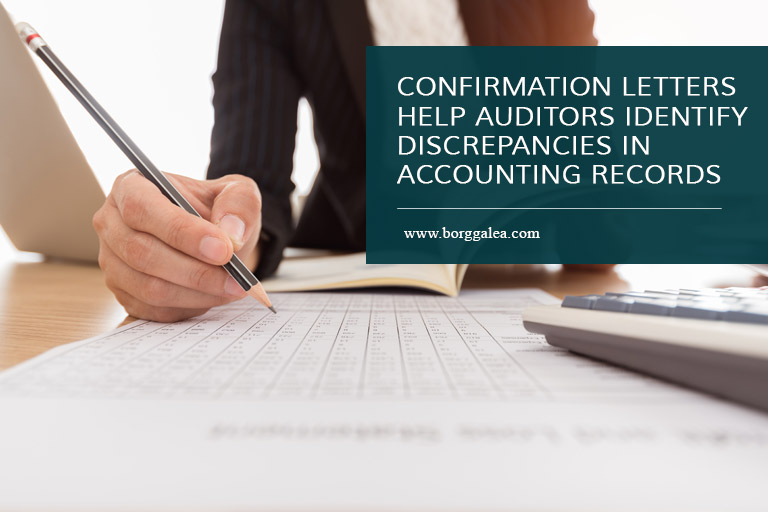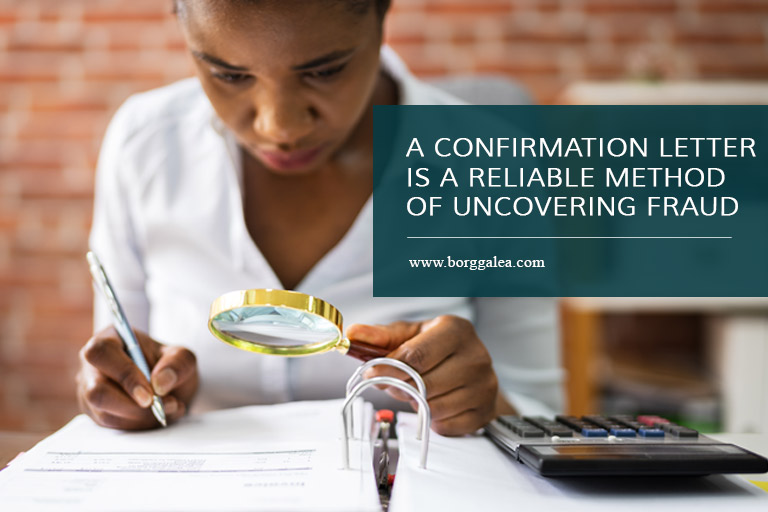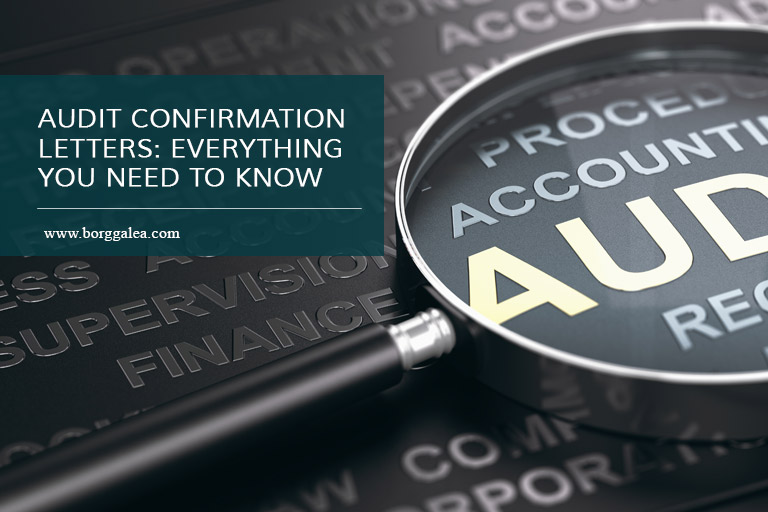The Use of Confirmation Letters
During the course of an audit, auditors are required to obtain sufficient audit evidence on the basis of which to establish their opinion. Confirmation letters are considered to be among the most persuasive forms of audit evidence because they are received directly from a third party. What are confirmation letters and why are they important?
ISA 505
ISA 505 (which is one of the Internal Standards of Auditing followed by auditors) defines external confirmations as “audit evidence obtained as a direct written response to the auditor from a third party (the confirming party), in paper form, or by electronic or other media”. An audit confirmation letter is an inquiry sent by the auditor to a third party to establish the contents of the accounting records of the entity that is being audited.
What Should the Confirmation Letter Include?

The confirmation letter shall include relevant information that the recipient is able to confirm clearly identifying the exact and full name of the organisation being audited. Confirmations help in identifying discrepancies in accounting records, existence and rights and obligations. For auditors, obtaining responses is a critical stage in terms of information reliability. The auditor must take the necessary steps to obtain control over the process. These include designing the confirmation request, determining the parties to contact and the information to be requested, and delivering and making follow-ups on all the requests. Confirming parties should send responses directly to the auditors and not to the accounting department of the entity being audited, as otherwise the confirmation letter would be considered unreliable and additional audit procedures would need to be conducted.
Types of confirmation letters:
1. Bank Confirmation Letter
When confirming bank balances, the bank confirmation letter is one of the strongest forms of evidence. A bank confirmation extends beyond the verification of the actual bank balance since the auditor will be able to test further assertions obtaining comfort on any contingent liabilities, outstanding interests and overdraft limits. This letter will also inform the auditor of all accounts held and closed during the financial period under review.
2. Debtor Confirmation Letters
Highly reliable independent audit evidence can be obtained by selecting a sample of the audit client’s credit customers for direct confirmation to ultimately test the accuracy, existence, and valuation assertions. Within accounts receivable confirmations the auditor shall confirm terms of unusual or complex agreements or transactions especially those relating to the entity’s revenue recognition. When selecting a sample of debtor balances the following shall be considered:
- Old, unpaid accounts
- Accounts written off during the period under review
- Accounts with credit or nil balances
Obtaining debtor confirmations will give the auditor comfort on any potential risks of material misstatement due to fraud or otherwise relating to revenue recognition.
3. Payable Confirmation Letters
The auditor may also send out confirmation letters to the audit client’s trade payables, to test the existence, accuracy and valuation assertations. A payable confirmation letter also provides evidence of any unrecorded liabilities.
4. Inventory Confirmation Letters
The auditor shall also ascertain if any inventory is held at third parties, this can rightfully be achieved by sending out a confirmation letter. By doing so, the auditor will be able to obtain comfort in the quantity and condition of the stock held.
5. Legal Letter
Where the entity has any pending litigations, the auditor may send out a confirmation letter to the lawyer to confirm the status of the pending litigation or any form of litigation the audit client may be involved in.
6. Related-party Confirmation Letters
The auditor should also consider confirming balances and terms of significant transactions with related parties such as directors, major shareholders or the ultimate beneficiary owner. By preparing a confirmation letter, the auditor will be able to confirm the existence and terms and conditions of the related-party balances within the entity being audited.
The Design of the Confirmation Letters

The auditor may use positive or negative confirmations or a combination of both. A positive confirmation request requires the respondent to reply by either conforming to the information already provided within the confirmation letter or providing data themselves. Alternatively, a negative confirmation request only requires the respondent to return the confirmation should there be a disagreement with the information presented. Deciding which type of confirmation letter to prepare is a matter of judgement for the auditor. However, negative confirmations are only sent;
- When there is no reason to suspect that customers are unlikely to respond
- Where the risk of material misstatement is low and the related controls have been assessed as operating effectively.
The design of the confirmation request may affect the response rate and the reliability of the information to be obtained, therefore the auditor must be involved in the design of the confirmation request.
To conclude, confirmation requests are appropriate substantive procedures for obtaining audit evidence regarding assertions. Given that invoices and supporting documentation provided by the client may possibly be tempered, a confirmation letter is a reliable method of uncovering fraud. Requests by management not to confirm certain balances should be carefully considered. Unless alternative procedures can be applied, non-confirmation might result in a limitation of scope thereby leading to a disclaimer of opinion.
If you need assistance regarding audit-related activities, don’t hesitate to contact Borg Galea & Associates. We’re here to help you with the audit process for your Malta company. Call us at + 356 27037012 or email us at [email protected] for inquiries.




